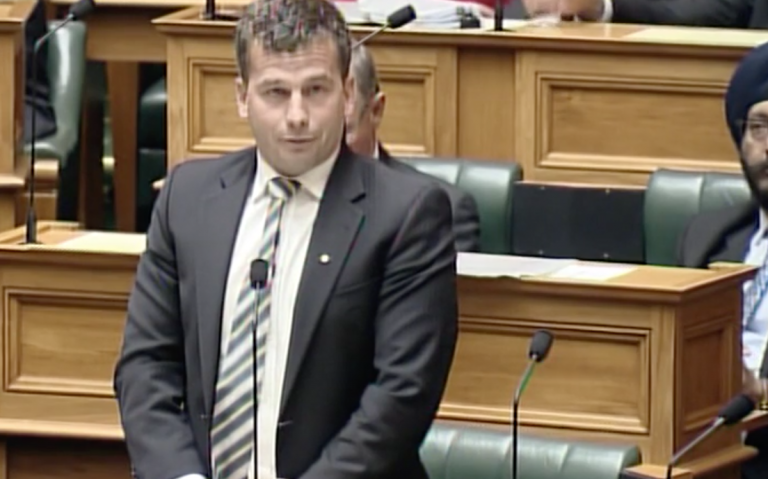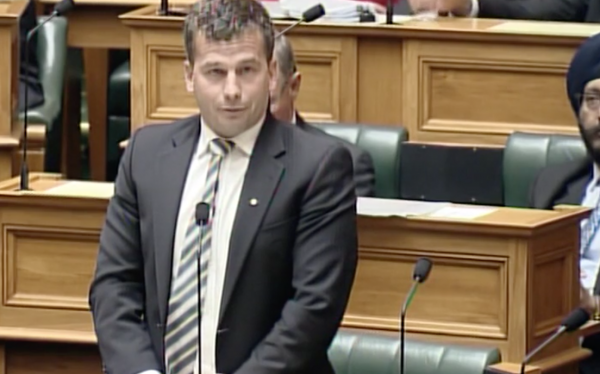
Earlier this week, several minorly amazing things happened. National decided to breach its nine-year commitment to leave the retirement age untampered with; Labour found itself with an MP in a leadership position whom the public actually seem to like; and I caught myself red-handed agreeing with David Seymour.
Having done a quick spot-check just to ensure that his (and my) home electorate of Epsom hadn’t frozen over, I then moseyed my way over to social media to see what everybody else thought of the week’s startling events – and in particular, the proposed increase to the pension age.
The reaction was sadly, somewhat predictable. And by this, I don’t mean that a clear majority of the people I interact with were opposed to the age going up (because that vocal disapproval is anything BUT sad!).
Instead, I refer to this regrettable new trend of boldly declaring that any policy-set perceived to favour the older (‘Boomer’ and ‘Greatest’) generations in our society is somehow a manifestation of “Intergenerational Warfare”. Forget “Class Struggle” … this is now the apparent Dialectic Du Jour of the modern, trendy lefty.
Now this is not to say that English’s recently announced pension policy is fair or equitable. By allowing the (presumably more National-voting) older generations of today to retire at 65, yet ripping the rug out from under the Gen-Xers, Ys, and Millenials who’ll be looking to retire at or after the decade in which the policy actually comes into effect, National is cynically stating that they’re quite prepared to engage in some SERIOUSLY unrighteous policy-making. Particularly given they effectively intend on making us pay for the costs of a 65 retirement age which we younger folk will never, most likely, benefit from. [That’s the part I agree with David Seymour on, in case you were wondering]
But is this “Intergenerational Warfare”, as some have suggested? I think not. That would imply that there is a broad mass of ‘Boomer’ and ‘Greatest Generation’ members out there enthusiastically cheering on the idea that they’re somehow “winning” by continually impoverishing and short-changing their children and grandchildren.
Instead, what’s happened is the neoliberal ideologues who actually run our economy are making bad decisions. Bad decisions, to be sure, which fairly deliberately mainly negatively effect those whom they perceive as least likely to be able to effectively fight back against them.
And yes, it’s certainly true that a goodly number of the National Party Caucus who are presently pushing this change are, themselves, Baby Boomers. Just as was a fairly large proportion of the 2014 Labour Caucus who did likewise at the last Election. But this is tempered by the number of out-and-out Quisling young people (predominantly Young Nats), who seem to be looking forward with licking lips to being amongst the first New Zealanders to have to compulsorily work into their late-60s. It simply doesn’t seem to be adequate to state that all those in favour of this present policy are older New Zealanders – still less, that all those opposed are young people. Indeed, with New Zealand First leading the charge against the policy, to attempt to assert so would be blatantly counterfactual.
Let’s be clear about this. There IS a fault-line within New Zealand Politics that is presently screwing over young people. But it’s NOT a consciously Older-Versus-Younger one. After all, the trends I’m talking about seriously deleterious affect older New Zealanders, too! If they’re not already well up the property ladder, pensioners on fixed incomes do only marginally better than beneficiaries and probably worse than minimum-wage earning young people when it comes to navigating our new, dilapidated extra-neoliberal public services; and they’re much less employable, in some respects, than either of these other demographics.
Instead, the ‘fault-line’ is between those in a position to effect policy, and those locked outside of the system. Between those who’re able to benefit from the way our economy is structured, and those whose ongoing prosperity or survival seems continually undermined by same.
And that suggests that this calculated insistence upon casting X governmental policy decision as yet another battle in a war of Old against Young is classic “Divide And Rule” tactics from those in power. Because if we’re really busy exerting all of our energy into blaming each other (on EITHER side of the age-divide), then we far more easily lose sight of the REAL forces and factions ACTUALLY to blame.
It probably feels good for the disenfranchised of all ages to lob insults and sketch stereotypes of people a few decades apart from them chronologically. To blame parts of the housing crisis on smashed avocado toast or gerontocratic greed, for instance. This does not make it accurate. It also doesn’t actually help us to solve the problems being talked about.
What is needed is co-operation rather than conflict between generations with a view to stopping this monstrous neoliberal ideology once and for all. This does not mean ignoring the fact that particular manifestations of pernicious policy such as the proposed pension package are more unequal for some age-groups than others. But it does involve setting aside some differences of opinion – and the inevitable associated recriminations – in favour of pursuing shared advocacy for genuine solutions.
Once upon a time, as a much younger man at university, I was introduced to the idea of “cross-class co-operation” in a Marxist context. The idea there was that the challenges inherent in attempting to overthrow (or, at the very least, reform) the excesses of capitalism were of such magnitude that the working class by itself was unlikely to be able to achieve this. Which would thus necessitate the strategic co-operation with other classes in society in order to attempt to bring about meaningful change.
I am not making the case for some sort of Marxian insurrection here in New Zealand by drawing upon that point of theory.
But it does seem, when so much energy is taken up by young activists objectifying our older forebears into The Enemy, that there is something productive to be had in remembering that working WITH our parents and grandparents may, in fact, be the superior way to go about making our situation better.
For all of us.
Certainly, if we wish to be cynical about this, the National Government have already resoundingly demonstrated that they have precious little interest in actually engaging with the perspectives or the votes of younger New Zealanders. Yet they’re evidently potently paranoid about the possibility of losing support from the Older Generations (hence, presumably, their decision to defer raising the Age of Entitlement until persons thinking about retirement today are already WELL on their way to dotage).
Part of the answer to our present circumstance, therefore, does obviously lie with attempting to turn younger New Zealanders into the sort of high-turnout voting demographic which can make or break elections. But this is longer term thinking. In the short and medium term, the way to start the beat-back upon Neoliberalism is to foster inter-generational co-operation against it. Rather than, as some are wont to do, give in to the temptation to blame our forebears for policy-sets and governments which they may very well have played very little role in empowering. (It’s worthwhile to remember that our parents’ generation are also the ones responsible for the MMP system which we enjoy today, delivered as the fairly direct result of their cohort’s attempted fightback against the disempowering and ultimately unrepresentative FPP system which gave us first Rogernomics, and then Ruthanasia)
In any case, as noted above – much of the present Parliamentary-Political opposition to this raise in the retirement age for younger people is being driven by older New Zealanders (supplemented and assisted by many of the younger Parliamentarians). This represents a great example of the interests and advocacy of the two generational groups coming together in order to oppose Neoliberalism.
Long may it continue.

























